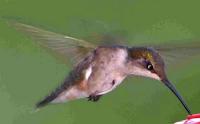
Strike water for mashout
#1

Posted 03 December 2009 - 05:59 PM
#2

Posted 03 December 2009 - 06:17 PM
Guess that will be one big beer...........Also how much sparge water would I need to collect the 7.5 gallons? In the end I only need another 1.5 gallons of water. Seems like it should be more.Thanks for any help.
#3

Posted 03 December 2009 - 09:06 PM
Check the rest calculatorMarmotI want to add that 2 gallons back in to mash out but don't know what temp I should bring it up to to get 170 degrees F.
#4

Posted 04 December 2009 - 04:56 AM
Does anyone know the calculations for determining the temperture of the strike water for mashing out?7.50 to collect for boil19lb of grain1.25 qt/lb= 6 gallonsMash for one hour @150 degrees FLose 2 gallons to grain absorbtionI want to add that 2 gallons back in to mash out but don't know what temp I should bring it up to to get 170 degrees F.Also how much sparge water would I need to collect the 7.5 gallons? In the end I only need another 1.5 gallons of water. Seems like it should be more.Thanks for any help.
Check that link and you'll find as I've come to find out that for most beers you'll never be adding enough boiling water at mash out to bring the temperature above 170F.
#5

Posted 04 December 2009 - 07:41 AM
I agree with that. I try to get 2 equal volumes from my batch sparges. I mash as 1.3 qt/gal and figure .1 gal per pound of grain for absorption and round up for dead space in the tun. So typically 12 lbs of grain mash with 4 gallons. Figure about 5 qts absorption and I want to collect 6-1/2 gallons. 16 qts - 5 qts = 11 qts. I want to get 13 qts on each sparges, so I 'mash out' wiht 2 qts.Then the next batch is with 13 qts (figuring absorption and dead spaces are already taken care of).This works well for me.As far as mashing out, you denature the enzymes quickly once you start the boil.Check that link and you'll find as I've come to find out that for most beers you'll never be adding enough boiling water at mash out to bring the temperature above 170F.
#6

Posted 04 December 2009 - 08:51 AM
I ran your numbers for you on my Mash Calc Spreadsheet.Here is what I come up with:For a water ratio of 1.25 and assumptions that your grain and mash will be at 62 degrees, and that you want a mash of 155 degrees, this is what I come up with.Your Strike Water for the mash should be 23.75 quarts (5.9 gallons) You will have a mass of 49.4 pounds total between the grain and water.Your strike temp should be 171 degrees.Your free liquid in the mash (i.e. unabsorped (sp)) will be 16.15 quares (4.1 gallons).For your Mash Out, here is what I come up with You will need 13.85 quarts (3.5 gallons) of water at 175 degrees.If you are batch sparging, you can split the 3.5 gallons between however many batches you are doing. When I batch sparged, I split it into 2 equal amounts.Hope this helpsDoes anyone know the calculations for determining the temperture of the strike water for mashing out?7.50 to collect for boil19lb of grain1.25 qt/lb= 6 gallonsMash for one hour @150 degrees FLose 2 gallons to grain absorbtionI want to add that 2 gallons back in to mash out but don't know what temp I should bring it up to to get 170 degrees F.Also how much sparge water would I need to collect the 7.5 gallons? In the end I only need another 1.5 gallons of water. Seems like it should be more.Thanks for any help.
#7

Posted 04 December 2009 - 09:26 AM
#8

Posted 04 December 2009 - 09:26 AM
#9

Posted 04 December 2009 - 01:27 PM
Thank you. SBI always sparge with 175-180F water, what's this cal-cu-late thing ?
#10

Posted 04 December 2009 - 04:47 PM
This is what I do once we get a nice mash going, if it needs to be hotter I just drain some off, heat it, and pour it back in...If you are really want to do a mash out, try using a decotion step. Instead of more hot water, add a decoction to raise the temp. You do not have to boil the decotion for a full inteerval, just enough to bring it to boil.zymot
#11

Posted 04 December 2009 - 05:15 PM
Edited by JKoravos, 04 December 2009 - 05:15 PM.
#12

Posted 05 December 2009 - 10:26 AM
A mashout is certainly not a bad thing to do, but neither is it gonna make a world of difference if you're batch sparging. Do it if you can/want to, don't worry about it if you can't/don't want to.I've tried to do boiling water additions for mashouts a few times using ProMash's calculator. It's really hard to get that temp above the low-160s with any reasonable amount of boiling water. Using the amount ProMash recommended generally only got me from the low-150s to about 160.
#13

Posted 05 December 2009 - 11:49 AM
This is what am doing now also,(batch sparging) i bring my water up to a near boil(the amount needed for my set-up to have 6.5 gallons)add to the grains, stir well and run-off . No waiting , i had 78 percent efficiency last brewing session.A mashout is certainly not a bad thing to do, but neither is it gonna make a world of difference if you're batch sparging. Do it if you can/want to, don't worry about it if you can't/don't want to.
#14

Posted 05 December 2009 - 03:05 PM
I fly sparge, but hadn't really done any type of mashout until recently. To me, it's another one of those things that is optional for homebrewers. There are benefits to it, but if you are fully converted after the saccharification rest, the benefits are mainly related to mash efficiency. A critical factor for pro brewers, not so much for home brewers.A mashout is certainly not a bad thing to do, but neither is it gonna make a world of difference if you're batch sparging. Do it if you can/want to, don't worry about it if you can't/don't want to.
#15

Posted 05 December 2009 - 04:12 PM
I htink it may be more critical for fly spargers than batch spargers. Remember, even once you have the starches converted, the enzymes keep working to break down less fermentable sugars into more fermentable ones. If you batch sparge, you get to a boil so soon that it doesn't matter much. But if you fly sparge for 60-90 min. (I think that's typical), your wort is getting more fermentable the whole time. In that case, a mashout can be useful to set the fermentability of the wort. But I agree that it's not critical.I fly sparge, but hadn't really done any type of mashout until recently. To me, it's another one of those things that is optional for homebrewers. There are benefits to it, but if you are fully converted after the saccharification rest, the benefits are mainly related to mash efficiency. A critical factor for pro brewers, not so much for home brewers.
0 user(s) are reading this topic
0 members, 0 guests, 0 anonymous users















